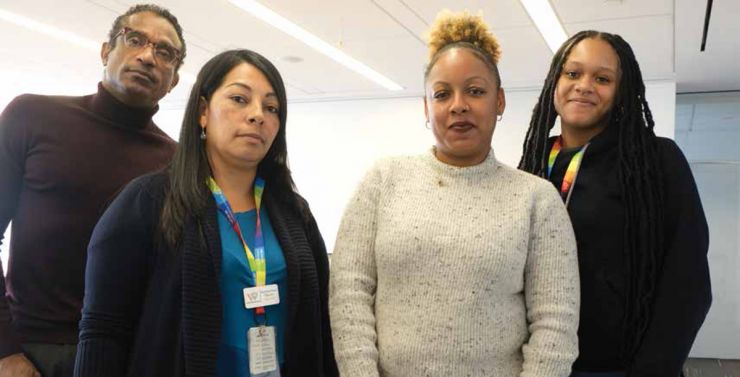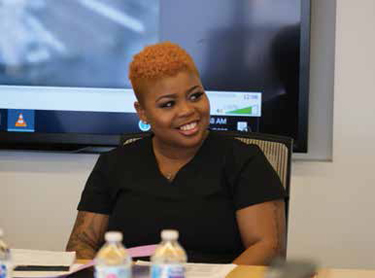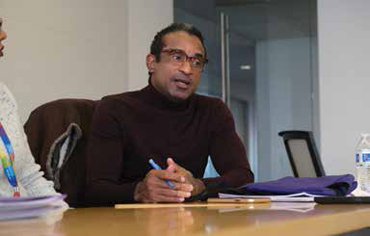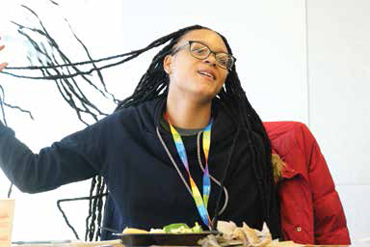Preparing Our Leaders for Today and Tomorrow
February 27, 2020
Reinvigorated program supports new and experienced delegates alike.

Delegates are 1199’s backbone. Without a force of specially trained, dedicated members in 1199-represented institutions, the union would not be able to negotiate and enforce contracts, grieve labor law violations and uphold our hard-won standards, benefits, and salaries—some of which are the best in the health and social service industry.
Keeping delegates at the top of their game requires an ongoing investment in training to make sure new delegates know the ropes and long-standing delegates stay up to date.
The constant drumbeat of anti-union propaganda in the country at large has meant that many younger members do not enter the Union with a consciousness of what collective bargaining means for them, and more broadly, the entire working class. The Union’s Education Department is committed to giving delegates all the tools they need to be effective in their roles—whether that be representing members during a grievance or informing members about contract negotiations and encouraging them to take part.
And to that end, the department has recalibrated 1199’s Delegate Training Program, implementing new materials and methods that reflect new demographics entering the workforce, relationships with burgeoning social movements, and current pedagogical philosophy. So far, 950 delegates from downstate New York, the Hudson Valley, and Maryland/D.C. have taken part in the recalibrated delegate training program. At least another 1,100 are due to join the program in the coming months. Graduation ceremonies will be taking place around the region in February and March.
The classes, which are conducted by regional staff in collaboration with the Union’s Education Department, emphasize interactive learning and role play to prepare delegates for real-life situations.
Instructors employ a popular education model in which participants draw lessons from their personal experiences. Among the subjects that were covered in the curriculum were labor history, politics, social justice, public speaking, the role of leaders in the workplace and workplace organizing projects.
At a recent meeting, graduates say that the classes spoke directly to current issues, exploring topics as wide ranging as the increased attacks on labor, the rollback of social and economic gains, the #MeToo movement and Black Lives Matter. In the Maryland/DC region, members from Whitman-Walker Health, a nonprofit community health center in Washington, D.C. with a special expertise in HIV/AIDS and LGBTQ health care, participated in a delegate training session earlier this month. The classes employed methods and language geared toward today’s younger workers.
Camille Benbow, a Peer Ambassador at the clinic who took part, recalled the organizing drive that brought Whitman-Walker workers into the union: “Everyone came together as a collective because they were simply tired of being overworked and underpaid.
“As a union member, it is important to continue to keep your foot on the gas pedal. Never lift that foot up. You can’t take the pressure off for the things you want. You just must keep fighting. You’ll get what you want in the end.”
Client Services Representative, Raul Hernandez, said the training taught him how different forms of retaliation for union activity could take place without members realizing it was happening. Referral Coordinator Jisanet Gonzalez shared how the classes deepened her understanding of the meaning of leadership.
“I realized that once you become a leader, you have to have that hat on all the time. You must make sure you respect everyone, but it’s not just here; it’s also outside. And when people see that they are comfortable, they feel safe to either listen to you or follow you or look up to you.”
- 1199 Magazine: January / February 2020




